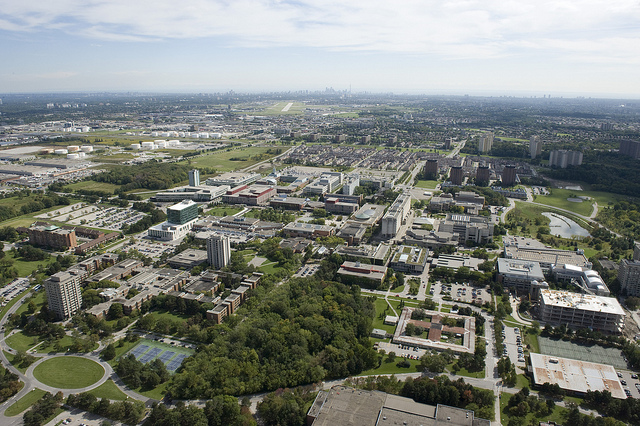When students heard rumours of a doubling of international tuition fees at York University, they scratched their heads in disbelief. It couldn’t be, could it?
Then when they heard university administrators proudly boasting about the revenue a modern-day ‘head tax’ on foreign students would bring in, they scratched their heads again. It wasn’t possible they just said that, was it?
Head tax?
Tragically, all these things were not only true, but they’ve become symptomatic of a culture that thrives — quite literally — on the systemic targeting of international students in this province. And it’s reached an unprecedented scale at York University.
It’s a culture against which students are finally prepared to fight back.
Differential fees: A sneaky made-in-Canada approach to offsetting federal funding cutbacks
For many students who enter post-secondary studies these days, the fact that international students pay higher fees has become so normalized that we don’t question it. Yet, it’s a fairly recent trend.
In Canada, differential fees for international undergrads date back to the 1970s and 1980s, depending on the province. They were a provincial response to federal cuts to post-secondary transfer payments. That’s what they remain: a sick symptom of federal and provincial underfunding in post-secondary education.
Many provinces — like Ontario — regulate tuition fees for domestic students. But when it comes to international students, provinces like Ontario have told universities they’re willing to turn a blind eye to tuition fee policies.
And universities have responded, succumbing to the temptation to target their most vulnerable and exploitable students.
Aggressive and unrepentant
In the summer of 2013, the York University Board of Governors introduced a scheme to aggressively target international students with a series of dramatic fee increases over the next four years. After the fee hikes, annual fees for international graduate students will rise from roughly $11,000 annually (in 2013) to roughly $20,000 annually (by 2017).
In addition, there will be what the university has scandalously called an $825 “head tax” for international Masters students, and the existing International Tuition Fee Scholarships are being phased out (they currently provide up to $4,800 a year in support, with the intention of making the previous — lower — fee structure more manageable).
The fee increases are counterintuitive and couldn’t come at a worse time.
In meetings with university administrators, student representatives have been told repeatedly that applications to the university are dropping (in the case of some graduate Masters programs, they’re plummeting) as is the university’s ranking as a first-choice among applicants.
The university’s solution, it appears, is to make the university even less desirable to potential students. Indeed, even senior faculty and program directors have come out against the fee increases, because of the effect they’re having on deterring quality applicants.
So students have decided to act. A working group was formed late in 2013 among key organizations representing students, including the York Graduate Students’ Association and CUPE 3903, the union representing teaching, graduate and research assistants (as well as contract faculty) on campus.
A series of organizing meetings has witnessed frequently high attendance from an increasingly diverse range of students, both domestic and international. And a well-organized campaign has gradually materialized which is going to see students challenge the university’s discriminatory approach to meeting its budget shortfalls.
A double tragedy
Students in provinces like Ontario where post-secondary education is chronically under-funded suffer a double tragedy. Not only are tuition fees as a whole at catastrophically high levels, but the system has been structured so as to exploit international students in an additional and discriminatory way.
This is often wrapped in bogus arguments such as the ubiquitous “well they don’t pay taxes.” Not only is this bewilderingly untrue — they certainly do pay taxes, and often inject more into the local economy than domestic students since they don’t have family support networks here to draw upon — but even if it refers to their parents’ tax contributions, they are no different than Manitobans enjoying Newfoundland’s low fees without having ancestry there. Arguments such as these are populist in the worst sense, and don’t bear up under any logical scrutiny whatsoever.
Indeed, it’s often been pointed out that there is an apparent disconnect between the Ontario Human Rights Code — which guarantees no discrimination in access to services on the basis of, among other things, “place of origin” — and the universities which, from a moral perspective if not a legal one, appear to be doing precisely that.
Whatever the legal case, the moral and ethical price of filching international students to fill university coffers in the absence of adequate government funding or oversight remains. And students aren’t prepared to let it go on.
The organizing campaign against international student fee increases is about to kick into high gear, with a petition drive and poster campaign designed to raise awareness of York’s reprehensible and discriminatory policies to the community and to the wider world. Hopefully it’ll help turn these troubling trends around — both at York and beyond.
To learn more about organizing efforts and the campaign to repeal the international fee increases, contact [email protected] or check out the Facebook page https://www.facebook.com/stopinternationalstudentfeehikes
Hans Rollman is a graduate student (PhD in Gender, Feminist & Women’s Studies) at York University and an editor and writer. He is a reporter and editor with the independent media site TheIndependent.ca, and has been published in a range of other publications including Briarpatch Magazine, Macleans On-Campus, Feral Feminisms and more.
Photo: flickr/The City of Toronto




